 A DOG RUNS
A DOG RUNS
THROUGH IT Poems Linda Pastan  Adjusting type size may change line breaks. Landscape mode may help to preserve line breaks. for Toby CONTENTS Adjusting type size may change line breaks. Landscape mode may help to preserve line breaks. My first dog was named Rowdy. I was ten, an only child, and my parents thought a dog would be good company. But I had books for company.
Adjusting type size may change line breaks. Landscape mode may help to preserve line breaks. for Toby CONTENTS Adjusting type size may change line breaks. Landscape mode may help to preserve line breaks. My first dog was named Rowdy. I was ten, an only child, and my parents thought a dog would be good company. But I had books for company.
I wanted to sit under the shadow of the piano and simply read. Instead I had to walk the dog before I left for school and walk him again when I came home. The Grand Concourse, in the Bronx where we lived, had few trees. Rowdy would pee against apartment houses, against the tires of cars, and when people looked on disapprovingly I would pretend it was not me at the other end of the leash. Why didnt I love Rowdy more? He was a black and white wire-haired terrier with a square face, handsome and well behaved, and I had few other things in my life to love. I have paid dearly for that deficiency by loving the dogs who followed him all too passionately, all too well.
There was the Welsh terrier Rusty, in my teens, also square faced but black and orange. I tried to teach him tricks; I even took him to an obedience class. But my father undid all my careful training by roughhousing with him and repeating the commands I had taught him as if they were jokes. I suffered and suffered more when I had to leave home for college, knowing that my dog would be both neglected and spoiled. When I learned, in my sophomore year, that the boy I was dating also had a dog named Rusty, I married him. Una was the first dog of our married life, a Bedlington terrier who looked like a lamb.
On Halloween we put a sign around the dogs neck: Wolf in Sheeps Clothing. I named Una for a character in The Fairie Queen , though everyone thought I had named her for Charlie Chaplins wife Oona. But I had young children then, and I fear that though loved, Una was somewhat neglected in the chaos of family life. Mowgli came next, the dog of my life. I say that in the spirit of a woman saying of a certain man: he was the love of my life. Mowgli was a Rhodesian ridge back, bred to hunt lions in Africa.
He was a large, rust-colored hound with a swordlike ridge of hair growing down his back. Though fierce looking, he was gentle and loving, and he followed me around the house from task to taskfrom laundry to study to kitchen. Once, when he disappeared for three days, I spent hours searching the woods near our house, shouting his name and weeping copiously. My husband finally found him in a deep hole some builder had dug to test the soil for a septic tank. He borrowed a ladder and carried Mowgli up in his arms. A few years later, though, when we were out of town, Mowgli died of stomach torsion while in a boarding kennel.
I have never put a dog in a kennel again. Caleb was another ridgeback, one with what John Irving called terminal flatulence, modeling a dog after him in The Hotel New Hampshire . My daughter Rachel was eleven when we got Caleb, but he was too big to sit on her lap. It was a lap dog she really wanted, so we added a black miniature poodle, Tanya, to our family. He lived with us for twenty-one years, longer than any of our children did. Annie was our penultimate dog, a Norwich terrier.
She looked a little like a large Totoa cairn terrier. I had seen one of her brothers at a friends house, perfectly trained, sitting and lying down and rolling over on command. Perhaps I thought Norwich terriers were born that way. Annie certainly wasnt, but she was an easy and lovable dog, though she would drink water only if someone was petting her. People told me that she would drink if she became thirsty enough, but that was like telling me to let my baby cry himself to sleep, something I had never done. And now we have Toby, our rescue dog, a gray mini-poodle mix.
He is a bit longer than the usual mini-poodle, so perhaps there is some dachshund in his DNA. Our whole family seems to be rescuing dogs recently, a fine trend, and Toby is a delight. But we had been told he was six years old, and when later our vet told us he must be at least ten, it was too late to consider returning him. He might not live for many years, but then neither might we, and in any case, we were hooked. What is it about dogs anyway, and dog people? We know who we are. We stop strangers on the street who just happen to be walking a dog, and we talk to them.
We hang out in dog parks. We cross a street to greet an unknown dog on the other side. And when a dog appears early in a movie, we worry that something will happen to it by the end. In fact, someone has actually made an app where you can put in the name of a movie and it will tell you if the dog is going to die! Some dog people have a kind of natural authority with dogs; dogs just know to obey them. I am not one of those people. I am more like the substitute teacher who walks into a classroom and every student relaxes and starts to text.
My dogs jump on me, bark at me, pull on the leash when we walk. So why am I hooked? President Truman was supposedly told that if you want to have a friend in Washington, you should get a dog. I live in Washington too, or nearby anyway, but I have lots of friends, so thats not it. Nor is it simply the wish to have company or to be unconditionally loved. Its something much more instinctive, even primal. Perhaps when our ancestors were domesticating dogs by long-ago campfires, a process that took years, we were learning to need them as they would learn to need us.
And so to this book. I knew I had written a number of poems about dogs over the years, but I was surprised when looking through my work to see how many dogs had sneaked onto a page about something else entirely, making the briefest of appearances. It reminded me of Toby, sneaking onto the forbidden couch when nobody was watching. This book is dedicated to him. A DOG RUNS
THROUGH IT John Wilde, oil on panel The great dog of night growls at the windows, barks at the door.  Into the gravity of my life, the serious ceremonies of polish and paper and pen, has come this manic animal whose innocent disruptions make nonsense of my old simplicities as if I needed him to prove again that after all the careful planning anything can happen.
Into the gravity of my life, the serious ceremonies of polish and paper and pen, has come this manic animal whose innocent disruptions make nonsense of my old simplicities as if I needed him to prove again that after all the careful planning anything can happen. 
 I tell my dog to sit and he sits and I give him a biscuit.
I tell my dog to sit and he sits and I give him a biscuit. 
 I tell my dog to sit and he sits and I give him a biscuit.
I tell my dog to sit and he sits and I give him a biscuit.
I tell him to come and he comes and sits, and I give him a biscuit again. I tell my dog Lie Down! and he sits, looking up at me with trust and adoration. I pause. I give him a biscuit. This is the beginning of love and disobedience. 
Next page
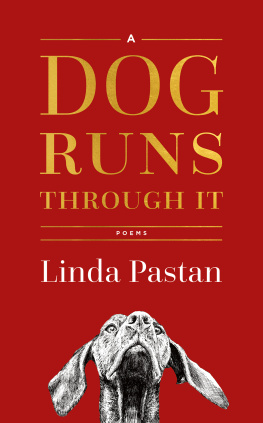
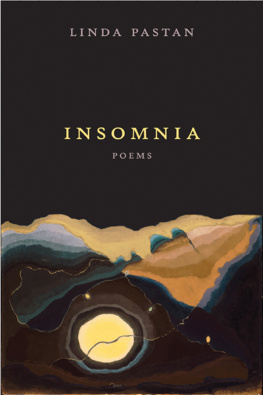

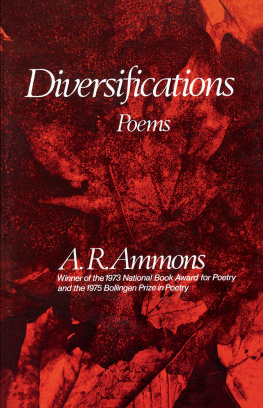
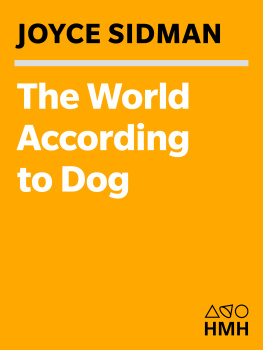
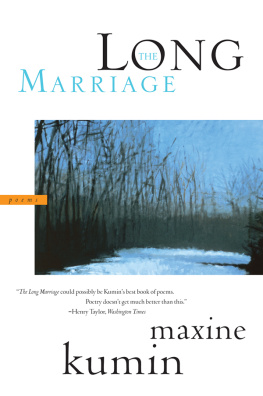

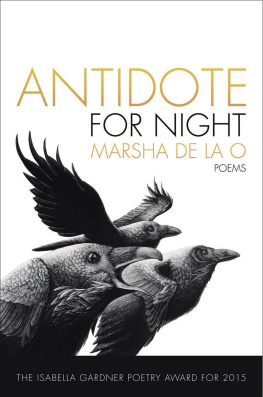
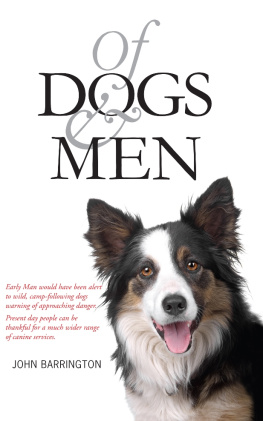
 A DOG RUNS
A DOG RUNS Adjusting type size may change line breaks. Landscape mode may help to preserve line breaks. for Toby CONTENTS Adjusting type size may change line breaks. Landscape mode may help to preserve line breaks. My first dog was named Rowdy. I was ten, an only child, and my parents thought a dog would be good company. But I had books for company.
Adjusting type size may change line breaks. Landscape mode may help to preserve line breaks. for Toby CONTENTS Adjusting type size may change line breaks. Landscape mode may help to preserve line breaks. My first dog was named Rowdy. I was ten, an only child, and my parents thought a dog would be good company. But I had books for company. Into the gravity of my life, the serious ceremonies of polish and paper and pen, has come this manic animal whose innocent disruptions make nonsense of my old simplicities as if I needed him to prove again that after all the careful planning anything can happen.
Into the gravity of my life, the serious ceremonies of polish and paper and pen, has come this manic animal whose innocent disruptions make nonsense of my old simplicities as if I needed him to prove again that after all the careful planning anything can happen. 
 I tell my dog to sit and he sits and I give him a biscuit.
I tell my dog to sit and he sits and I give him a biscuit. 